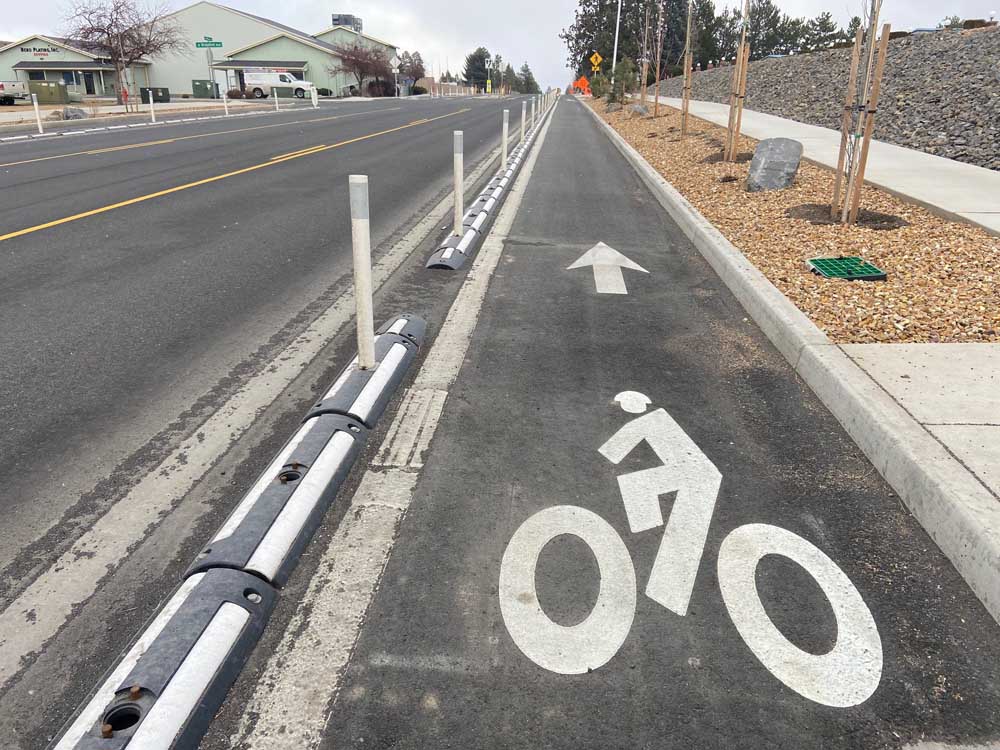Court upholds parking reforms, environmental rules after Oregon cities’ lawsuit
Published 8:51 am Friday, March 8, 2024

- The buffered bike path on a stretch of Wilson Avenue, seen in February 2023.
The Oregon Court of Appeals ruled to broadly uphold a series of climate-focused state transportation and land use policies after more than a dozen Oregon cities sued to stop the state’s land use department’s new rules.
The decision means the state can continue to implement the polices aimed at reducing climate pollution, particularly from transportation. They include removing parking requirements for businesses and requiring cities to build more densely and mix business, industrial and residential development so that residents don’t need a car to get around.
Trending
Thirteen Oregon cities, as well as one county and a handful of housing, business and trucking industry groups, appealed the Oregon Department of Land Conservation and Development’s climate friendly and equitable communities rules in July. The administrative rules stemmed from a 2020 order by then-Gov. Kate Brown to authorize state agencies to make changes to reduce greenhouse gas emissions.
Officials from cities that joined the lawsuit said the rules were too restrictive and often not tailored to their individual communities. Several also said their concerns weren’t addressed during the two-year planning process.
In its ruling Wednesday, the Court of Appeals upheld all but two of the state’s rules. It invalidated two components of the program: One would have required city governments to reevaluate previously approved roadway projects that could increase climate pollution; the other would have allowed the land-use agency to invalidate the transportation system plan developed by a city that’s out of compliance.
In 2022, before the lawsuit was filed, mayors from the participating cities decried the approach of applying a uniform climate policy to the entire state, saying that the new state-mandated rules would divert resources from their own local climate projects.
Others said at the time that the parking rules raised practical and equity issues for residents of more rural cities, who may travel out of town for work or live in multigenerational homes, meaning they might need more cars than average.
But advocates for the new policies said broad climate improvements are likely to be more effective at the state level. They also said that the new parking rules didn’t force cities to do anything, but just removed the requirement that businesses provide parking in order to operate.








